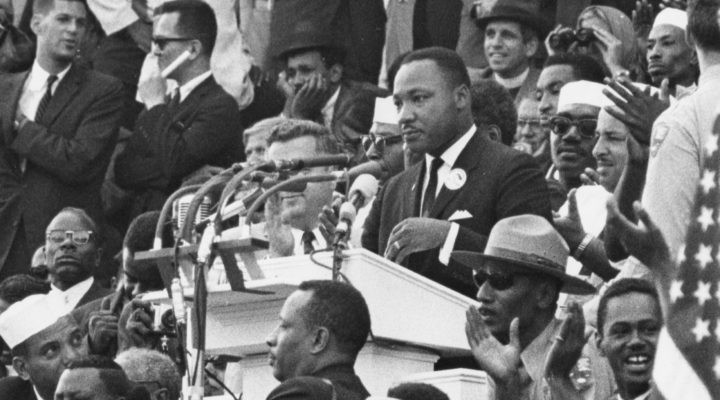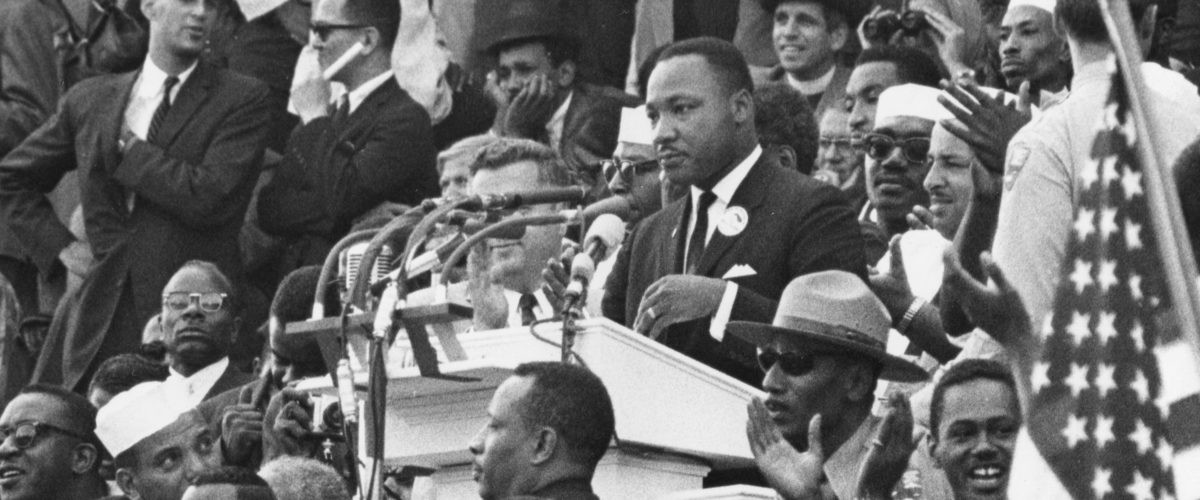It has been 60 years since one of the most iconic gatherings in U.S. history, On Aug. 28, 1963, in Washington D.C., the March on Washington for Jobs and Freedom was held. Simply known as the March on Washington, this event attracted at least 250,000 people who were advocating for racial and economic justice.
With the Lincoln Memorial as his platform, Martin Luther King Jr. delivered his “I Have a Dream” speech. This is undoubtedly King’s most famous speech. His resounding and masterful oratory from that day is forever etched in our nation’s memory.
This 17-minute speech is one of the main things that has contributed to King being held in such high regard by most Americans today.
Changing attitudes
Pew Research Center recently conducted a survey on how public attitudes toward King have changed over the years. Currently, eight in 10 American adults (81%) say King has had a positive impact on the U.S. This majority includes nearly half of Americans (47%) who say King’s impact has been very positive. Only 3% of those surveyed say King’s impact has been negative.
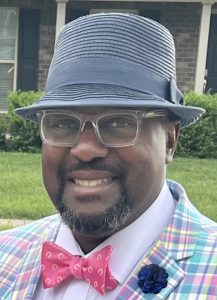
Joel Bowman
However, as we consider King’s legacy, we must be mindful that views of him have not always been as favorable as they are now. In May 1963, a Gallup poll found only about four in 10 Americans (41%) had a favorable opinion of King. By August 1966, Gallup found more than six in 10 Americans (63%) viewed King unfavorably, including 44% who viewed him highly unfavorably.
By 1968, the year of his assassination, King had become persona non grata in the American media. Remarkably, according to a Harris poll taken early that year, King had a disapproval rating of nearly 75%.
On top of this, King was viewed with suspicion by many African Americans at the time of his demise.
Reduced to a single speech
These indications of public disapproval and suspicion would be startling to many today, especially those who were not alive during King’s lifetime. That’s because since his death, King’s legacy has been reduced to his “l Have a Dream” speech.
The speech was primarily focused on King’s vision for the future, rather than on any of the specific policy recommendations or structural changes proposed in his other speeches, writings and interviews.
King’s daughter, Bernice A. King, has said some of her father’s quotes are “cherry-picked for convenience and comfort.” That is definitely true of the “I Have a Dream” speech.
The most often-repeated line of the speech is, “I have a dream that my four little children will one day live in a nation where they will not be judged by the color of their skin, but by the content of their character.”
In an opinion piece titled “The Whitewashing of MLK’s Legacy,” Kennith Woods said, “This singular statement has proven to be powerful and timeless — so much so, that King’s dream has largely overshadowed the rest of his speech and his life.”
“This statement by King has been grossly misappropriated by many on the right to forward a political agenda that is antithetical to King’s philosophy.”
This statement by King has been grossly misappropriated by many on the right to forward a political agenda that is antithetical to King’s philosophy. Some right-wing pundits have misused this line from the speech to suggest King envisioned a “colorblind” America. This certainly was not the case. What King actually envisioned was an America where racial inequality would be eradicated.
Others have misused this line from King’s speech to say he would have been against affirmative action and that he believed to “make it” in America, people just need to pull themselves up by their own “bootstraps.” This is patently false.
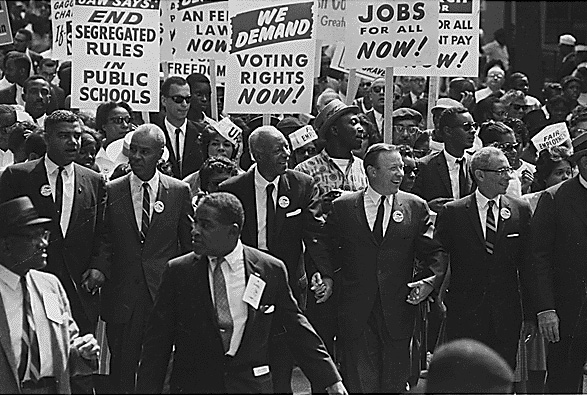
From the 1963 civil rights march on Washington. (Photo/Wikipedia)
In a 1967 interview with NBC, King said, “It’s a cruel jest to say to a bootless man that he ought to lift himself by his own bootstraps. And many Negroes by the thousands and millions have been left bootless as a result of all of these years of oppression and as a result of a society that deliberately made his color a stigma and something worthless and degrading.”
Still others, like former Arkansas Gov. Mike Huckabee, have invoked King’s name while opposing those who organize to protest police brutality of Black bodies.
In a 2015 interview with CNN, Huckabee said, “When I hear people scream ‘Black lives matter,’ I think, of course they do, but all lives matter. That’s the whole message that Dr. King tried to present, and I think he’d be appalled by the notion that we’re elevating some lives above others.”
How ridiculous! Huckabee doesn’t have a clue about King’s message, or he has intentionally twisted it. King obviously was not about elevating some lives above others. He wanted Black lives to be valued equally in a country where they always have been devalued and dehumanized.
Even some anti-Critical Race Theory crusaders, such as Florida Gov. Ron DeSantis, have invoked King’s name to lend credence to their racist propaganda. The irony is King’s work and writings inspired CRT curriculum. CRT scholars Derrick Bell, Richard Delgado and Jean Stefancic all credited King as a major source of inspiration.
King’s true legacy
So many people have bought into a whitewashed version of King’s legacy. Therefore, it is critically important that King’s true, undiluted legacy be presented to Americans of all backgrounds.
“The truth is, King was a radical.”
The truth is, King was a radical. Not only was he a fierce opponent of racism, but of capitalism and militarism as well.
He said: “We must see now that the evils of racism, economic exploitation and militarism are all tied together. … You can’t really get rid of one without getting rid of the others.”
One of the first indications of his critical analysis of capitalism can be seen in a letter to his then future wife, Coretta Scott, penned in 1952.
“I imagine you already know that I am much more socialistic in my economic theory than capitalistic,” he wrote. Capitalism “started out with a noble and high motive … but like most human systems it fell victim to the very thing it was revolting against. So today capitalism has outlived its usefulness.”
Using his own verbiage, he could be described as a “democratic socialist.”
In a 1961 speech to the Negro American Labor Council, King said, “Call it democracy, or call it democratic socialism, but there must be a better distribution of wealth within this country for all God’s children.”
King saw in neither capitalism nor communism a viable thesis, but he spoke of a “higher synthesis” at a Southern Christian Leadership Conference gathering in 1967.
Based on my close examination of King’s words, there’s no doubt in my mind he was in full support of wealth redistribution and reparations for descendants of enslaved persons.
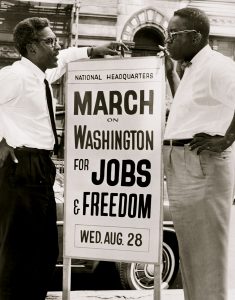
March on Washington Deputy Director Bayard Rustin (1987 – 1987) (left) and Administrative Committee Chairman Cleveland Robinson (1914 – 1995) talk on either side of a sign advertising the March in 1963. (Photo by Buyenlarge/Getty Images)
King said, “We can’t solve our problems unless there is a radical redistribution of economic and political power.” He also said, “A society that has done something special against the Negro for hundreds of years must now do something special for the Negro.”
Lest we forget, King vehemently opposed the Vietnam War. He first went public with these sentiments in 1965. Most notably, exactly a year prior to his assassination, he gave an address titled “Beyond Vietnam” at the Riverside Church in New York City. It was a scathing repudiation of the war.
Specifically, King referenced his opposition to “taking the Black young men who had been crippled by our society and sending them 8,000 miles away to guarantee liberties in Southeast Asia which they had not found in Southwest Georgia and East Harlem.”
As a Christian and a pastor, I’m most intrigued by King’s rebuke of the white “moderate” clergymen he addressed in his eloquent “Letter from Birmingham Jail” in 1963.
“In the midst of blatant injustices inflicted upon the Negro, I have watched white churchmen stand on the sideline and merely mouth pious irrelevancies and sanctimonious trivialities,” he said.
Regrettably, many Christian leaders still fit this description today.
“If peace means keeping my mouth shut in the midst of injustice and evil, I don’t want it.”
King was a man of peace. But we mustn’t be confused about the type of peace he embraced. In a sermon titled, “When Peace Becomes Obnoxious,” he declared, “If peace means keeping my mouth shut in the midst of injustice and evil, I don’t want it.”
Not so ‘safe’ after all
King was not as “safe” as many people currently make him out to be. In my estimation, he was assassinated because he was seen as a threat to the established social order of his day.
If people are only exposed to the typical excerpts of the “I Have a Dream” speech, they will have a very shallow and distorted view of one of the foremost figures of American history.
The same King who spoke of love said: “True compassion is more than flinging a coin to a beggar. It comes to see that an edifice which produces beggars needs restructuring.”
The same King who spoke of peace said: “A riot is the language of the unheard.”
King was focused on moving people to the point of holy discomfort. He wanted to make people so uncomfortable they would be motivated to confront injustice.
King was labeled a communist while he was alive. If King were alive, today, he surely would be dismissed as a “cultural Marxist,” “critical race theorist” and “woke.”
I dare say anyone who seeks to carry on King’s undiluted legacy in our current context will be dismissed in similar fashion.
What about you? Are you, like King, willing to be maligned for the cause of justice?
Joel A. Bowman Sr. is founder and senior pastor of the Temple of Faith Baptist Church in Louisville, Ky. A native of Detroit, he also is a licensed clinical social worker with more than 30 years of experience in the mental health field. He has been quoted in The Washington Post, USA Today, the Associated Press, and the Christian Post. Follow him @JoelABowmanSr and acompellingvoice.com.
Related articles:
60 years later, only our action can keep the dream alive | Opinion by Todd Thomason
5 ministers reflect on the 60th anniversary of the March on Washington
Author of new MLK biography explains the logistical miracle of the March on Washington
The untold story of Black women leaders in the Civil Rights Movement | Opinion by Marvin McMickle
Three reasons 2021 looks like 1961 in voter suppression | Opinion by Bill Leonard
MLK’s civil rights work was an outgrowth of his Baptist tradition, author explains

